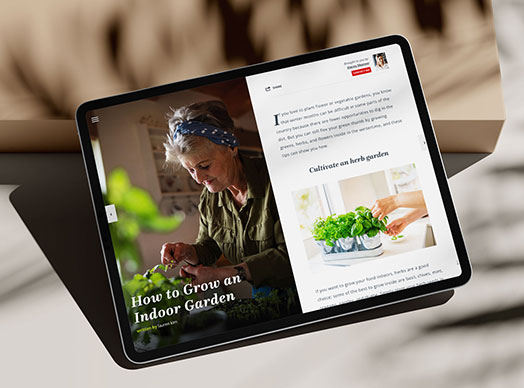Your CRM is more than a place to store your clients’ contact information—it’s a roadmap for your future client interactions and, ultimately, your success.
Yes, you should include basic information about your clients, such as their names, addresses, and other contact information. But, if you’re really looking to get the most out of your CRM (or other contact database), you should be using it to catalogue the kinds of information that will help you better serve your clients.
How your clients prefer to be contacted
Having your clients’ contact information is only one part of the equation. For one, if you’re not sure which way someone prefers to be contacted, you could be making yourself more of a nuisance than you realize. But you could also be missing out on opportunities to provide a better customer experience that will result in more business for you.
For example, some clients prefer to be contacted by email, since they can respond at their own convenience. Other customers find email too impersonal, and prefer to speak over the phone or face to face. Knowing your client’s preference could be the difference between being ignored or taking the next step—whether that’s a closed deal, a new transaction, or a valuable referral.
Your relationship with each client
Imagine being a client who’s worked with someone like you, maybe even on more than one occasion. Now, imagine that salesperson noticeably struggling to remember those transactions. It doesn’t feel good, does it?
When you’re following up with a client, you need to go in prepared. Within your CRM, you should find all the relevant information that will jog your memory of each client, enabling you to confidently reference your past interactions.
Is this client a new customer, or have they been working with you for a long time? Prior to any deals being closed, did they have any particular objections that seemed to come up repeatedly? Have they mentioned any products or services that they might be interested in down the line, but which they just couldn’t afford when you last asked?
When you know the answers to these questions, you’ll be better able to serve your customer—and will be more likely to anticipate what they might need or want in the future.
Names of spouses and children
When you’re a service-based salesperson, much of your business comes from clients with families. Even if you’re talking only to one member of the household, your transactions affect the entire family. For instance, if you’re a real estate agent helping a family with young children find a new home, you’ll probably want to show them homes with nice backyards that are located close to parks.
On a deeper level, you’ll want to record information about your clients’ family because you’re focused on building a relationship. That means you’ll want to show the person you’re doing business with that you care about the people who matter most to them.
In addition to the names of spouses and children, it’s a good idea to record:
- The age/grade level of each child.
- Whether they participate in extracurricular activities (e.g. sports).
- Contact information for your client’s spouse.
- How your client’s spouse prefers to be contacted.
And don’t be a stranger to the people your client cares the most about. Take an interest in their lives. Invite the whole family to any client appreciation events you have.
Remember: when you’re connected with the whole family, you’ll create good feelings around both you and your brand. When you do this, you’re far more likely to be given business in the future.
Names of your clients’ pets
This is a detail that most salespeople would neglect to include, but they definitely shouldn’t. For many of your clients, pets are like members of the family. When you ask your valued customer not only how their spouse and children are doing but also inquire about Barney the dog or Mittens the cat, they’ll be thrilled that you remembered.
You can also use the knowledge of your clients’ pets to strike up organic conversations. For example, you could send an email or text that says:
“Hi [NAME]! Just read this article about how intuitive cats are, and I thought of Mittens. Here’s the link, if you want to give it a read.”
If you’re a ReminderMedia customer, you can also connect with your clients about special pet-related content in your magazine. And be sure to use your Social Media Shares tool to share compelling articles about pets, art, and countless other topics.
Your clients’ hobbies
Just as you can bond with your clients over their pets, you can also use your knowledge of their hobbies to jumpstart great conversations. If you know that your client plays the guitar, you’ve got a built-in excuse to reach out to them regularly—sharing articles about new gear that’s been released, interviews with famous guitarists, or even just an amazing clip you found of Jimi Hendrix doing his thing.
Want a tip for taking this approach to the next level? Instead of merely sharing something with your client, ask them to share something with you. If you know they like to read classic novels, but you don’t know Mrs. Dalloway from Mrs. Doubtfire, ask them to give you some recommendations. They’ll be thrilled that you’re taking an interest in something that means so much to them, which will build rapport between the two of you.
Ultimately, your CRM should be approached less like an information database, and more like the invaluable relationship building tool that it is.
For even more suggestions for optimizing your CRM, check out our free, printable guide, The Ultimate CRM Cheat Sheet.

















